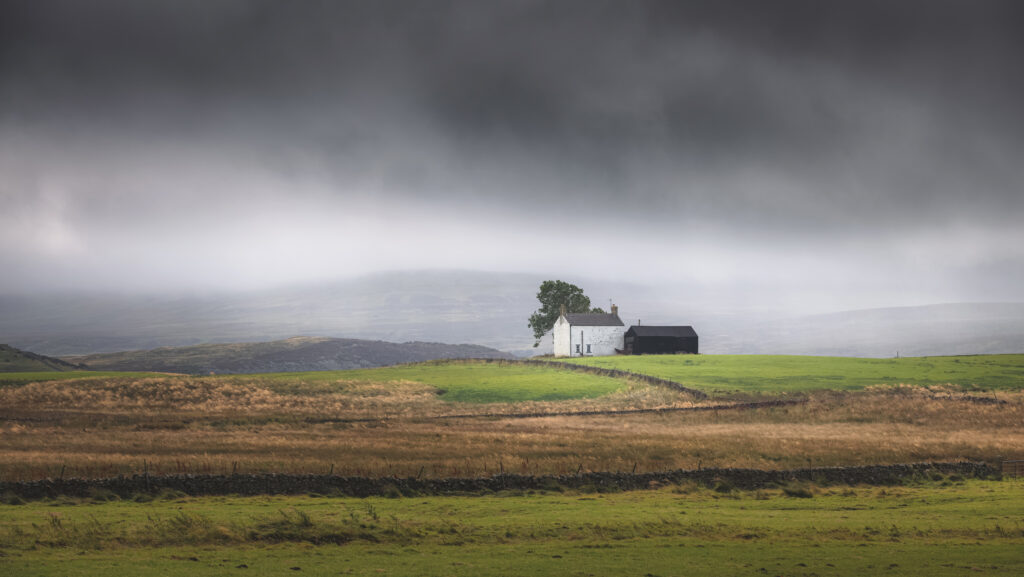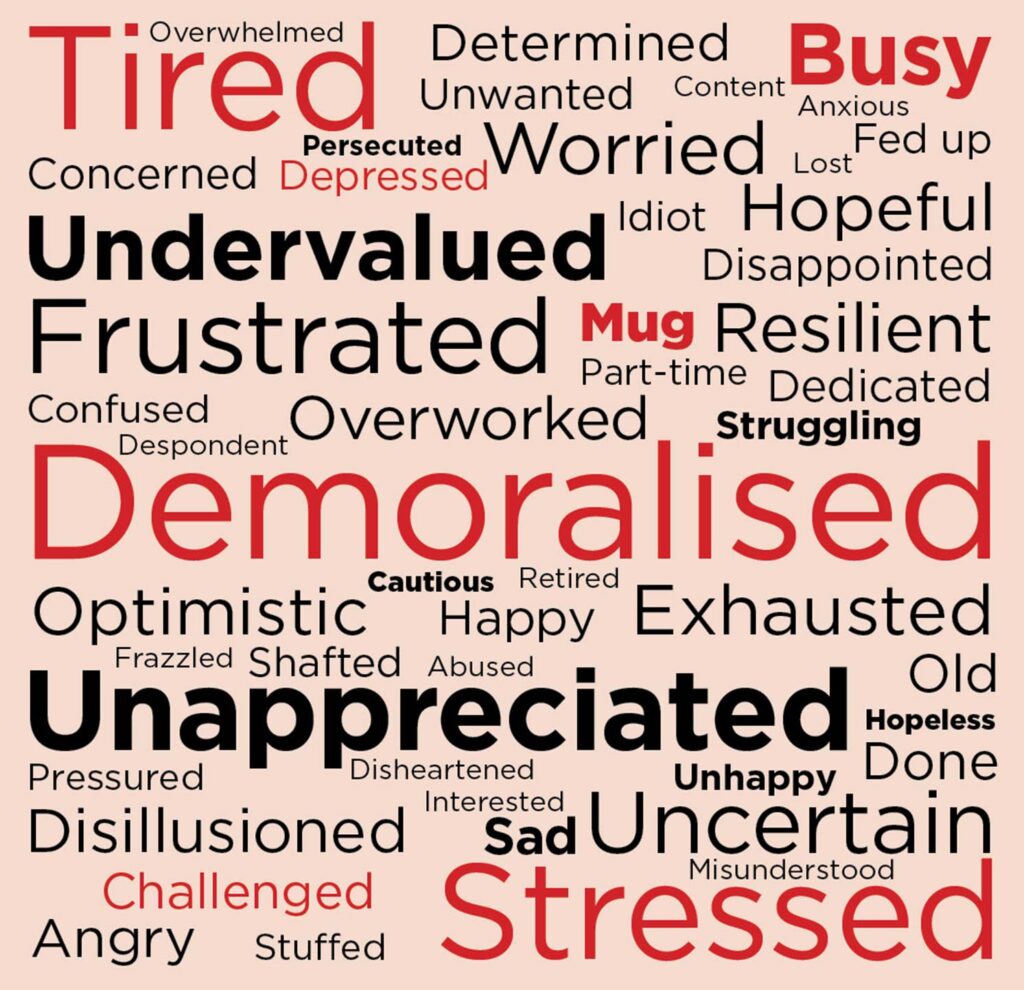FW Survey 2024: Politics and weather weigh heavy on the sector
 © Stephen Bridger/istockphoto
© Stephen Bridger/istockphoto That UK farming confidence has taken a battering is hardly a secret, but the extent of that decline is quite startling, as evidenced by the results of our annual Sentiment Survey.
Harvested from some 767 respondents – the most we have ever had – it shows a sharp fall in the proportion of farmers who claim to have had a “good” or “great” year, and a corresponding spike in those who described 2024 as “bad” or “terrible”.
See also: Extreme weather and high input costs take toll on farming
Indeed, only 13% seemed to be satisfied with the way things have turned out over the past year, while 37% said their businesses had suffered.
It is a complete reversal of the situation seen two years ago, when global commodity markets boomed in the wake of the Russian invasion of Ukraine and the effect on input costs had not yet filtered through.
Key drivers
As for what has been driving the 2024 reversal of fortunes – well, it’s all about the weather and politics.
Last year was not so good, weatherwise, either, with 31% of respondents citing “extreme weather” as the greatest challenge they had faced in 2023.
As well as enduring the wettest October of the 21st century and the sixth-wettest March ever, farmers also had to contend with the driest February in 30 years and the hottest June on record.
Few believed 2024 could be as bad, so when we asked a year ago what was likely to be the number one challenge in the year ahead, just 18% said “extreme weather”, several points behind “government policy” and “output markets”.
But climate change has done it again, with incessant rain, widespread flooding and repeated storm damage seemingly the “new norm”.
Consequently, some 40% of this year’s Sentiment Survey respondents put extreme weather as the top challenge again.
Government policy is right up there too – with 20% of farmers singling that out, compared with just 8% who gave this answer in 2023.
Uncertainty over the transition to the new post-Brexit policies has come to the fore for many, while the chancellor’s Autumn Budget also had a major impact, with farmers furious that Labour’s pre-election promises have seemingly been forgotten.
Differences
Of course there are sectoral and regional differences to be seen, both in terms of business performance and identified challenges.
While overall, farmers are taking a more negative view of the financial environment in 2024, more pig and poultry producers have reported a better year than other sectors.
Egg and broiler producers have seen better margins, while stable prices in the pig sector for most of the year have coincided with reduced feed costs.
The most negativity, however, has been in the arable sector, with 46% of cereal growers saying they have had a bad or terrible year, rising to 54% for those who also cultivate oilseed rape as part of the rotation.
Conversely, beef and sheep producers are more inclined to say they’ve had a “so-so” year, especially in Scotland and Wales, where more farmers will have benefited from this year’s buoyant livestock trade.
The reasons for the more downbeat view from crop farmers are not hard to fathom, either.
In response to the question “What has been your greatest challenge in 2024?”, about 50% of cereal, oilseed rape and pulse growers cited extreme weather ahead of anything else.
There is no doubt that the main cereal growing parts of the country have been exceptionally hard hit by repeated storms and flooding – with crop establishment especially difficult in the spring and autumn.
The slow rollout of the Defra’s Farming Recovery Fund in England – promised in April, but not reaching bank accounts until November – will also have influenced perceptions.
Significant uptake of agri-environment schemes
With cuts to the Basic Payment Scheme (BPS) either well under way or about to come into play across the UK, the numbers of farmers who have joined an agri-environment scheme has almost doubled in the past 12 months, with 46% of respondents saying they are now signed up.
Correspondingly, there has been a significant drop in the number who say they “plan to” join a scheme in future – presumably because they already have.
Not surprisingly, there is a massive regional difference, with just 11% of respondents in Wales saying they have joined a scheme, and only 3% in Scotland.
That compares with 56%-58% in the Midlands, the South-East and East Anglia, and reflects the much slower rollout of post-Brexit policies in Wales and Scotland compared with England.
Livestock producers have also lagged behind arable farmers in the uptake of agri-environment schemes across the UK, with just 41% of sheep producers signing up.
In contrast, farmers growing cereals, oilseeds and pulses have found it easier to access schemes – the latter group recording a 68% uptake.
This confirms the suspicion that upland farmers are currently poorly served by the options available under the Sustainable Farming Incentive in England, while the new Countryside Stewardship Higher Tier scheme has been subject to delay after delay.
Despite the growing interest in agri-environment schemes, a significant 25% still say they have no plans to join one, either because it does not stack up financially, or because it looks too complex – a view expressed by smaller farmers in particular.
It will be interesting to see how this proportion changes as cuts to BPS start to bite in the devolved nations in the coming years.
Farmer investment takes a downturn
One of the most-repeated claims during the ongoing furore surrounding inheritance tax is that this will undermine farmers’ ability or willingness to invest. Judging by the results of our Sentiment Survey, this is happening already.
According to the data, 25% of farmers said they had made no investments in their businesses in 2024, compared with 16% the year before.
Of those who did invest, about a quarter did so with the help of a government grant, while the other three-quarters relied entirely on their own funds or borrowings.
As for what they invested in, farm machinery remains the big one, though it certainly showed some slippage – a trend borne out by figures from the Agricultural Engineers Association, which has reported a 15% drop in new tractor registrations year-on-year to November.
Precision farming equipment also seems to have lost a bit of market momentum, judging by the survey results.
In contrast, there was a small increase in the number of farmers investing in buildings and infrastructure, possibly reflecting the availability of government grants in parts of the country for slurry stores, yard coverings and livestock equipment.
Dairy farmers in particular made use of government grants in 2024, with 26% saying they had done so, with a strong emphasis on buildings and infrastructure.
What one word would you use to describe yourself as a farmer?
Every year we ask our survey participants how they feel about life in the agricultural sector.
And every year the picture is the same, with farmers putting “busy”, “stressed” and “uncertain” near the top, and “appreciated” and “rewarded” near the bottom.
Those are the words we suggest to them – and it is little wonder to find that livestock and dairy farmers are the busiest, while smaller farmers feel the least rewarded.
But as the word cloud reveals – when we ask farmers to come up with their own words to describe themselves, “demoralised” was this year’s number one.
Given the year the industry has just faced, it kind of speaks for itself.

Time out – and what holds farmers back
Survey after survey shows that farmers are among the hardest grafters in the country, working long hours in often challenging conditions.
As such, together with our charity partners the Royal Agricultural Benevolent Institution (Rabi) and the Royal Scottish Agricultural Benevolent Institution (Rsabi), we looked into the extent to which farmers take time away from the farm, and what might be holding them back.
Alarmingly, we found that, on average, farmers take just over seven days a year away as holiday, with only a third of respondents taking any more than this.
This is despite most farmers admitting they benefit from leaving the farm behind for a bit – with 31% saying it gave a small benefit to their wellbeing and 48% admitting to a big improvement.
The reasons for not wanting to leave the farm for a night or more are many, but it seems it is very much a people thing, with three-quarters of respondents saying they would not be confident leaving anyone else in charge.
The survey showed that smaller farmers and those with livestock were the least inclined to take time away, while farm managers were more able to take longer breaks.
Geographically, farmers in Wales took the shortest breaks, with 29% saying they had no time away at all.
Rsabi chief executive Carol McLaren said: “Taking time away from the farm, even for a short period, is so important for wellbeing.
“Making time to step away can also bring benefits for the business, with a refreshed outlook, and for family relationships too.”
Sponsor’s comment
 Lantra continues to support farmers and the agricultural industry through developing high-quality training and qualifications, recognised by industry.
Lantra continues to support farmers and the agricultural industry through developing high-quality training and qualifications, recognised by industry.
We also remain committed to improving the apprenticeship program for agriculture.
By listening to your feedback, Lantra ensures that training is fit for purpose, so you can grow your skills to meet the needs of today, and the future, in an ever-changing environment.
Our supporters
About the survey
- Conducted late October/early November
- 767 respondents
- 82% owner-occupiers, 14% tenants, 5% farm managers
- Strong spread by region and farm type
- Average farm size: 245ha
- Average age: 59
